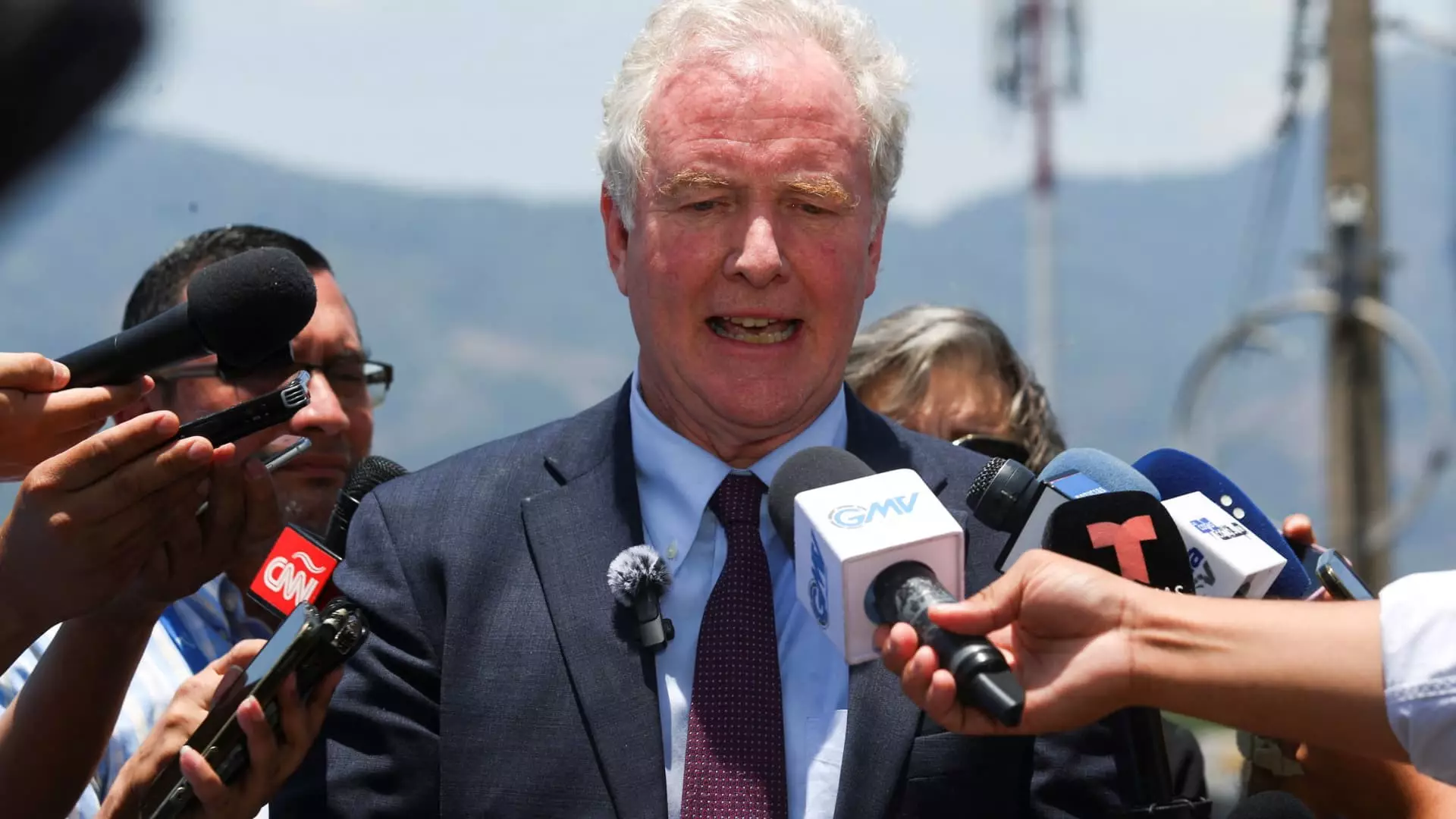The case of Kilmar Abrego Garcia is a searing indictment of the U.S. immigration system and its egregious violations of human rights, compounded by the callousness of previous administration policies. The recent confirmation by Senator Chris Van Hollen of his meeting with Garcia highlights the urgency and moral imperative underlying this situation. Garcia, deported to El Salvador in a blunder reminiscent of the most inhumane policies, stands as a testament to how easily human lives can be cast aside in the realm of politics and bureaucracy. When Garcia was forcibly sent back despite a Supreme Court ruling protecting him, it underscored a systemic failure to uphold justice and human dignity.
As the senator himself stated, he aimed to meet Garcia and deliver a message from his wife, Jennifer. This simple act speaks volumes about the humanity that distinguishes these political negotiations. It unearths the core reality often overlooked in political rhetoric: that behind every policy decision are real people, families torn apart, and lives irrevocably altered.
Political Theater or Genuine Concern?
Critics may question the genuineness of Van Hollen’s actions. Is this a case of political theater aimed at garnering sympathy or an authentic effort to rectify a travesty? The senator’s own claims of “cover-up” by the Trump administration shed light on the bureaucratic manipulation that can mask undeniable truths. Such a label suggests that beyond the political maneuvering lies a deliberate negligence, a wanting to obscure the human cost with procedural phraseology.
Despite the looming cloud of skepticism, one cannot ignore Van Hollen’s proactive measures. His insistence on meeting with human rights groups and officials in El Salvador, alongside his frustration at being denied entry to check on Garcia, demonstrates an earnest commitment. However, the challenges he faced in accessing Abrego Garcia—a stark reminder of the authoritarian obstacles faced by those seeking justice—paint a disheartening picture of the current climate. One is left to wonder, at what point does the struggle for a singular life become lost amid the cacophony of political machinations?
The Broader Implications of Unjust Deportation
The implications of this case extend far beyond Garcia himself. It serves as a microcosm for the experiences of countless refugees and immigrants who live under the constant shadow of injustice and maltreatment. While Garcia arrived in the U.S. seeking refuge, his plight encapsulates the dangers faced by many who flee their native lands seeking safety. The deportation marks not just a personal crisis but a blatant violation of the trust that vulnerable populations place in systems that promise protection.
Moreover, the fact that a Supreme Court ruling was swiftly ignored adds another layer of complexity. It magnifies a precarious scenario where judicial rulings are undermined by executive actions, prompting questions about the sanctity of legal promises. Politics should not dictate the lives of human beings; a live-and-let-live ethos is fundamental in any civilized society.
The calls from several Maryland officials for “verifiable proof” of Garcia’s health only emphasize the grotesque opacity of the situation. The notion that a government can remove someone from their home and then deny their family the basic assurance of their well-being is a chilling commentary on the current state of civil rights.
Hope Amid Despair: The Role of Activism
Despite the overwhelming odds against him, Kilmar Abrego Garcia’s case highlights the tenacity of activism as a powerful tool for justice. The mobilization of local and national leaders, family members, and human rights activists reflects a sobering reality: that community response can be galvanizing even in the bleakest circumstances. Van Hollen’s active engagement may serve as a catalyst for broader political discourse surrounding immigration and human rights—a dialogue that must happen if any real change is to be had.
The resilience of people like Jennifer Garcia, who stands unwaveringly by her husband’s side, illuminates the fight for rights that should be commonplace yet remain contentious. Their love serves as both a beacon of hope and an indictment of a system that allows such travesties to occur—an urgent call for a reckoning that must be heard.
While the political landscape appears murky, one truth remains clear: Kilmar Abrego Garcia’s story is not merely a headline; it is a rallying cry for those who believe in justice and humanity, urging us to confront and dismantle an inhumane system.


Leave a Reply